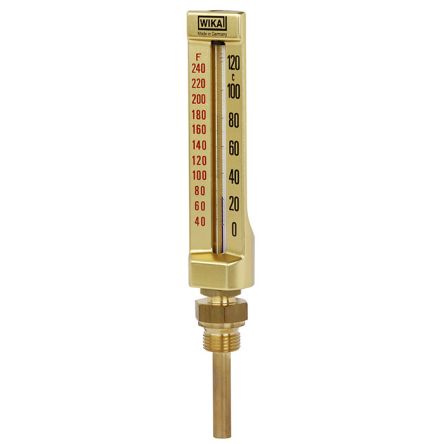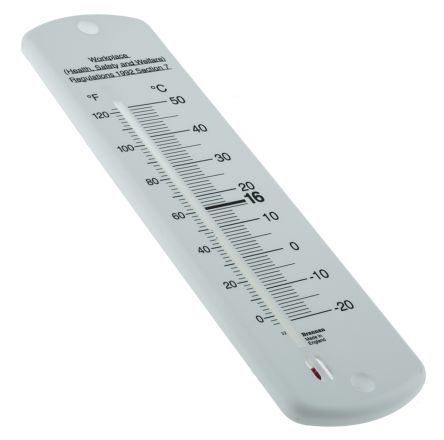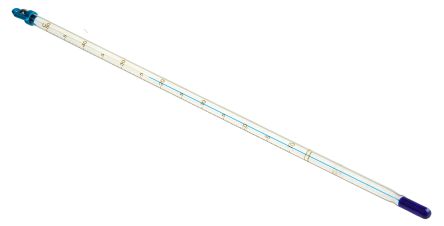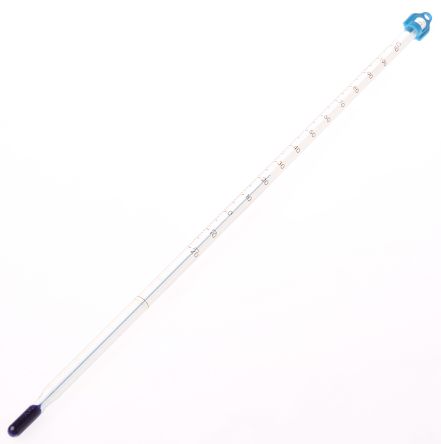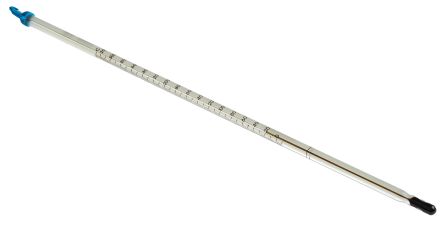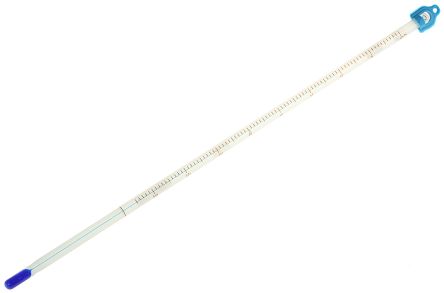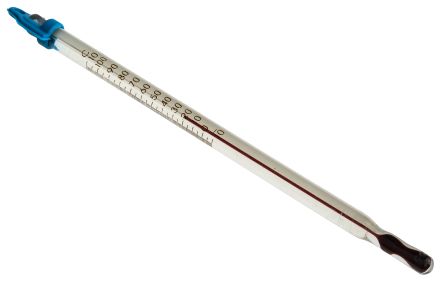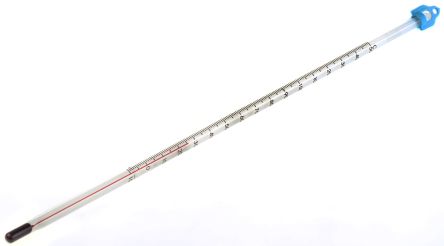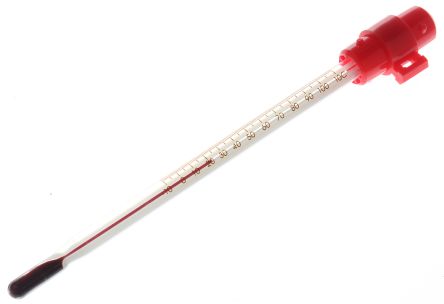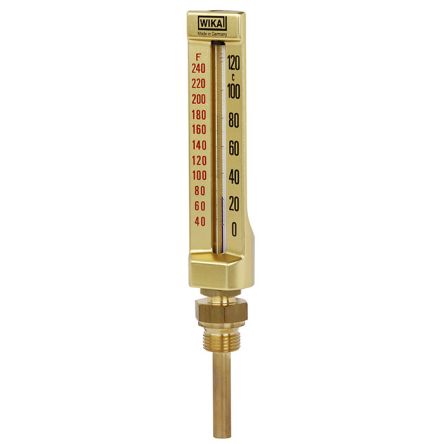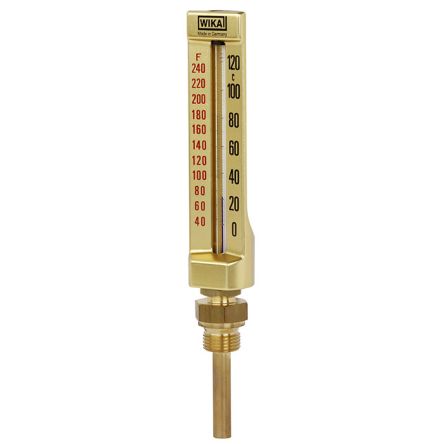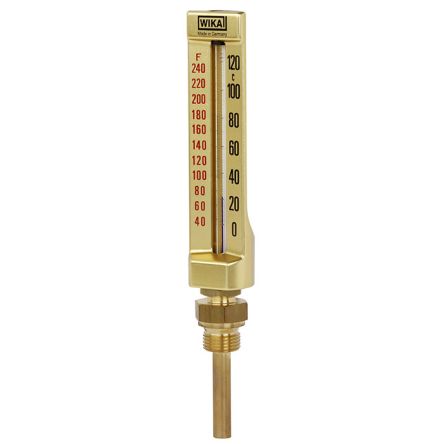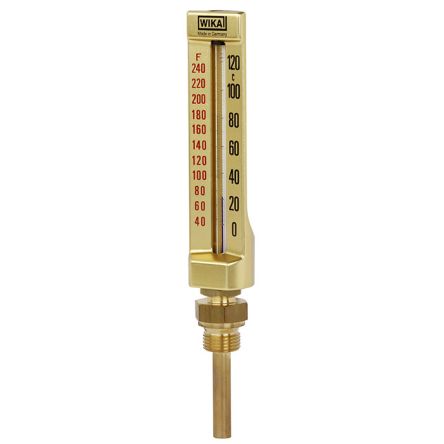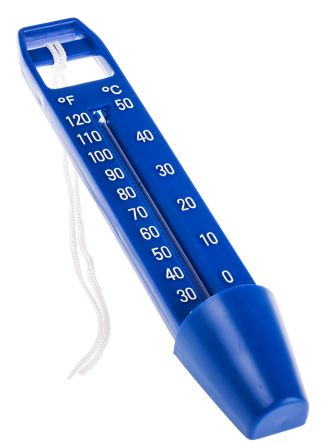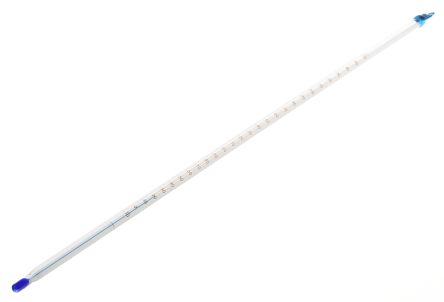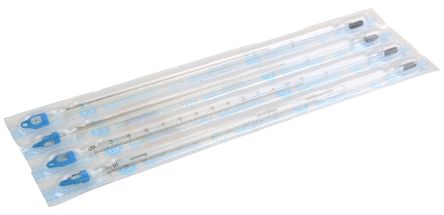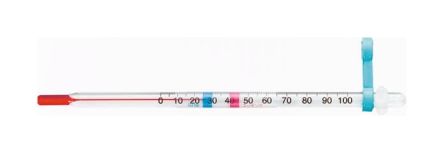- Automation & Control Gear
- Cables & Wires
- Enclosures & Server Racks
- Fuses & Circuit Breakers
- HVAC, Fans & Thermal Management
- Lighting
- Relays & Signal Conditioning
- Switches
- Batteries & Chargers
- Connectors
- Displays & Optoelectronics
- ESD Control, Cleanroom & PCB Prototyping
- Passive Components
- Power Supplies & Transformers
- Raspberry Pi, Arduino, ROCK, STEM Education & Development Tools
- Semiconductors
Glass Thermometers
Glass thermometers allow simple touch-temperature reading for various applications. Though lacking the versatility of digital thermometers, glass thermometers have the advantage that they require no power system to operate, and can be used at any time.
The RS range of glass liquid filled thermometers features precision models from leading brands. There are wall-mounted, freezer optimized and immersion suitable thermometers available to suit your applications. You can discover more in our glass thermometers guide.
How Do Liquid-in-Glass Thermometers Work?
Glass thermometers contain a substance that is temperature reactive, and expands when heated. As the liquid expands it raises to different levels that connote different temperatures, allowing you to quickly ascertain the reading.
Applications
- Kitchen. Food storage is vital in the safe preparation of foods, and it is important to ensure that refrigerators and freezers are running at optimal temperatures to ensure the safe storage of food. They can also be used to ensure ovens are at the correct temperature, and that meats are cooked the whole way through.
- Medical. Clinical glass thermometers are sometimes used in medical environments to get a temperature reading of a patient. This can help ascertain whether the patient has a fever, which may connote sickness. Usually, body temperatures above a normal range of 36 °C to 38 °C may be cause for concern.
- Laboratory. Glass thermometers are considered to be a quick and effective way of measuring temperature changes, which may be vital to an experimental process.
- Manufacturing. Glass thermometers are an accurate way to ensure environmental temperature is as it should be, which may be essential when handling temperature sensitive materials. This is typical in electronics manufacturing or certain food processing.
- General Purpose and Gardening. Liquid-in-Glass thermometers are often used as a reference to keep temperatures optimum in your home or greenhouse, which can be essential to the health of your plants.
Health and Safety
Most modern glass thermometers have a non-mercury based liquid, which reduces the risk of poisoning should the thermometer break. There are spirit-filled, and non-toxic fillings available for peace of mind in sensitive areas.
Glass Thermometers can help support a healthy building by improving Thermal Health
;
